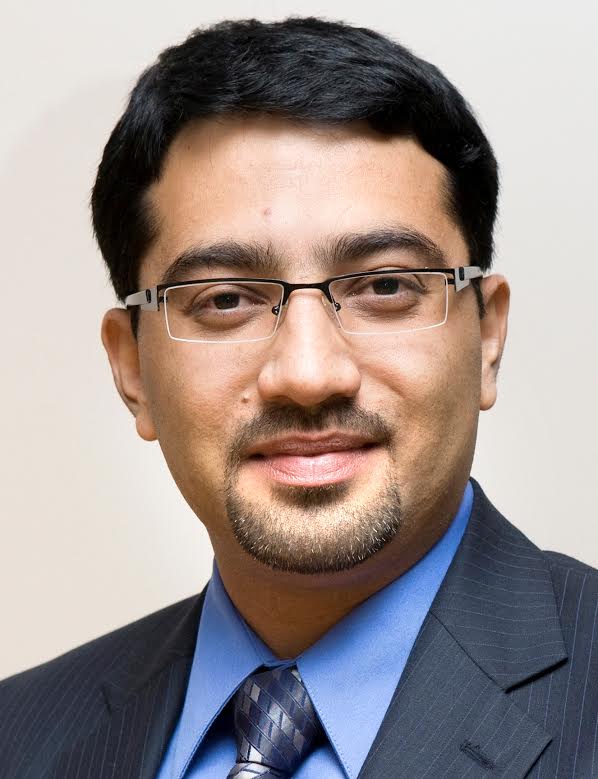Madhavan Nampoothiri of RESolve – Climate Professional Interview – Clidemy Careers
Clidemy Careers is a new section at Clidemy where we post inputs and insights on career opportunities opening up in the fast growing climate action sector.
The Climate Professional Interview is one avenue through which we provide the insight. In this, we interact with professionals working in the climate action domain to get answers to questions that will be of value to many others who are seeking a career in climate.
We are pleased to present this Climate Career Professional Interview with Madhavan Nampoothiri, Director and Founder of RESolve Energy Consultants.
RESolve Energy Consultants stands for providing well researched, insight-driven, field-tested advice on the Indian Renewable Energy sector.
They serve a distinguished set of clients on the key areas of policies and regulations, manufacturing and project implementation in the Indian Solar and Wind energy sectors. Their core team of experts who bring to the table, an aggregated experience of almost two decades in the Renewable Energy industries of seven countries including the USA, UK, Germany, India and China have assisted major American and European companies enter into the Indian Solar and Wind Energy markets.
Team Clidemy thanks Madhavan for his insights.

Tell us a bit about your educational background
I have a bachelor’s degree in engineering, an MBA from Indiana University, US and am currently pursuing a part-time PhD from IIT Madras.
What is your current role?
I work as a Management Consultant in the area of Climate Change, Decarbonization and Energy Transition.
What are the different types of climate roles you have played so far?
I worked in the petroleum downstream sector for close to 6 years and for about 14 years in the clean energy sector. All my roles have been related to business management, and I have worked in operations, channel management, marketing and finance.
How does a typical week at work look?
In my role as a management consultant, I work with the top management of corporations and advise them on strategic decision-making, like diversification into a new sector, making investment decisions in projects or expanding to new geographies. In order to help them make the right decisions that will determine the success of the company in the next few decades, I gather market data through both primary and secondary sources, conduct forecasting, scenario planning and financial modelling and conduct regular meetings with clients to share updates and seek their feedback. In addition, I spend time with research associates who report to me, and coach them in doing their job efficiently and effectively.
What are the components of your work that excite you the most?
I get to expand my knowledge in the areas of energy and climate change, every day. My work also helps top executives make informed strategic decisions.
What types of skills are specifically required in your type of role?
For my role, one has to be deeply curious and have the aptitude for gathering and processing information. My role also requires high levels of analytical skills and the willingness to apply knowledge to practical decision-making. Last but not the least, the role also demands excellent communication and presentation skills.
What types of educational background would roles such as yours require?
An MBA will be highly valuable for a management consultant, but non-MBAs with excellent analytical, interpersonal, and presentation skills can also be quite successful in this role.
What would your suggestions be for students or professionals keen to have careers such as yours?
Management consulting is one of the most highly sought-after careers for ambitious professionals. My suggestion would be to sharpen your analytical, interpersonal, and presentation skills to excel in this career. This suggestion is for aspiring management consultants not only in the climate domain, but also in other domains.
What are your suggestions for professionals from sectors unrelated to climate technology to get a foothold in your sector?
Shifting to climate technology requires one to gain a deep understanding of the causes and effects of climate change and develop skills that are relevant for firms working in this area. These skills can be technical; For example, a professional working in the area of semiconductor manufacturing can easily move to solar photovoltaic module manufacturing as there are transferable skill sets. Similarly, someone working in the electrical engineering-related professions can learn new skills that are highly relevant for the renewable electricity sector. Professionals with other functional expertise can likewise embrace gaining domain expertise relevant to climate technologies.
What are your perspectives on the future business trends and career opportunities in your sector?
Climate change is one of the most important issues of this generation, and the fight against it is going to take place for multiple decades. As most of the countries across the world have pledged their commitment to “net zero”, the sector needs new technologies and professionals who can develop and deploy these technologies. As such, the career opportunities in this sector are expected to grow exponentially.
What are your future aspirations in your career in climate technology?
Help grow professionals who can make a big impact in this sector.
What other interesting career roles are opening up in your domain?
None of the existing technologies are sufficient to tackle the challenge of climate change, and there is a need for developing new breakthrough technologies that can help achieve Net-Zero goals. The development and deployment of such new technologies are expected to open up a lot of new roles in this domain.
Have there been some really satisfying events or moments in your career?
Being part of one of India’s earliest solar plants (20 MW in Gujarat) in 2012 was a very satisfying moment in my career, as I could tell myself that I was also at the epicenter of India’s solar revolution.
If you were to start with your college education all over again, what changes would you have made?
I wouldn’t change anything.
What are your other interests and hobbies?
I like reading.

